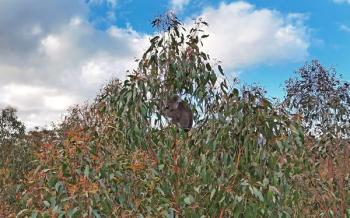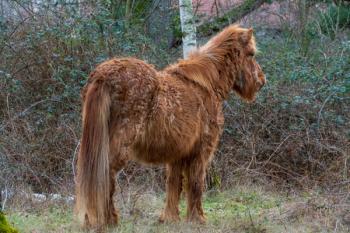
Interactive feature: Top 5 trees poisonous to large animals
Do you know the clinical signs of these tree-related toxicoses and how to help affected patients?
Trees provide shelter, shade and wind breaks for large animals but may also be a contributing cause of illness. Typically, animals with adequate nutrition will not browse foliage or ingest leaves or seeds, but drought, storms resulting in fallen branches, curiosity or boredom may result in their consumption. Hover over the numbers below to see which trees post a danger to large animals and why.
Careful attention must be paid to animals pastured close to these trees, and every effort must be made to prevent access. Pastures should be examined, especially after storms, and fallen limbs, branches and leaves should be removed. The black walnut tree itself is not toxic, but shavings made from it are and should not be used as horse bedding.
References
1. Martinson K, Hovda LR, Murphy M. Plants poisonous or harmful to horses in the North Central United States. St. Paul, Minnesota: University of Minnesota Press, 2008.
2. Alward A, Corriher CA, Barton MH, et al. Red maple (Acer rubrum) leaf toxicosis in horses: a retrospective study of 32 cases. J Vet Intern Med 2006;20(5):1197-1201.
3. Agrawal K, Ebel JG, Altier C, et al. Identification of protoxins and a microbial basis for red maple (Acer rubrum) toxicosis in equines. J Vet Diag Invest 2012:25(1):112-119.
4. Valberg SJ, Sponseller BT, Hegeman AD, et al. Seasonal pasture myopathy/atypical myopathy in North America associated with ingestion of hypoglycin A within seeds of the box elder tree. Equine Vet J 2013;45(4):419-426.
Suggested reading
> Burrows GE, Tyrl RJ. Toxic plants of North America. Ames, Iowa: Iowa State University Press, 2001;8-10, 162-163, 726-727, 1043-1049.
> Nicholson SS. Southeastern plants toxic to ruminants. Vet Clin North Am Food Anim Pract 2011;27(2):447-458.
Melissa Franssen is a 2016 DVM candidate at the University of Minnesota College of Veterinary Medicine. Lynn R. Hovda, RPH, DVM, MS, DACVIM, is the Director of Veterinary Services at Pet Poison Helpline, Bloomington, Minnesota.
About Pet Poison Helpline
Pet Poison Helpline, an animal poison control center based out of Minneapolis, is available 24 hours, seven days a week for pet owners and veterinary professionals who require assistance treating a potentially poisoned pet. The staff provides treatment advice for poisoning cases of all species, including dogs, cats, birds, small mammals, large animals and exotic species. Pet Poison Helpline is available in North America by calling 800-213-6680. Additional information can be found online at
Newsletter
From exam room tips to practice management insights, get trusted veterinary news delivered straight to your inbox—subscribe to dvm360.




